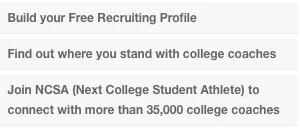New Interpretations Philosophy Brings Common Sense To NCAA Rules
Two months ago, the NCAA sent a memo outlining a significant change in how Division I institutions should interpret and apply NCAA rules. The new interpretations philosophy is the result of a collaborative effort between the NCAA’s academic and membership affairs (AMA) and enforcement staffs, the Conference Commissioners Association Compliance Administrators (CCACA), and the National Association for Athletics Compliance (NAAC). The memo and its attached materials recognize that not all NCAA rules are created equal and the ones which are less significant should not apply to every situation.
The heart of the memo is a diagram which divides topics into three color-coded categories.
| Green | Yellow | Red |
|---|---|---|
| More Flexibility | Intermediate Flexibility | Limited Flexibility |
| Circumstances involving health or safety of an SA or PSA | Application of rules requiring evaluation of familial relationships | Academic integrity and eligibility requirements |
| Medical expenses for an SA | Benefits to SAs (or family members) from teammates (or family members of teammates) | Sports wagering |
| Academic and other support services | Determination of countable athletically related activities | Extra benefits from a representative of athletics interests |
| Assisting SAs with a family emergency | Limited participation in organized competition with minimal competitive benefit | Involvement with agents and advisors |
| Expenses arising due to participation in athletics | Institutional fundraising activities involving SAs | Maximum financial aid limits |
| Team entertainment provided by the institution | Nominal benefits to PSA-age children of an alumnus who is receiving benefits consistent with institutional practice | Application of recruiting legislation absent extraordinary circumstances |
| Institutionally arranged benefits for SAs at the going rate in the locale (e.g., employment, housing) | Application of coaching limits and IAWP legislation | |
| Playing season limits (e.g. length of season, number of contests) |
The first item, circumstances involving the health or safety of an athlete or prospect, should be approached with the “utmost flexibility”. The rest of the green category includes the discretion to take actions that “a reasonable person would consider appropriate in light of the applicable rule(s) and relevant circumstances”.
The middle or yellow category includes situations not clearly within the intended scope of the rules, but which provide more than a minimal benefit or advantage. Flexibility is appropriate “where a proposed action does not conflict with another rule (or a previous interpretation)”. The red category includes core NCAA rules where flexibility is inappropriate “absent extraordinary circumstances”.
Critical to the success of this initiative is the involvement of the NCAA’s enforcement staff. The memo to institutions was signed by both the NCAA’s vice president of academic and membership affairs Kevin Lennon and vice president of enforcement Jon Duncan and tries to be clear that this is not a trap:
When addressing issues and legislation described in this interpretive initiative, the membership should be assured that exercising more autonomy and making reasonable decisions in identified areas will not result in second-guessing by the NCAA staff.
This was reinforced at the NCAA Regional Rules Seminar last week in Atlanta during a session on this philosophy. The session involved a number of case studies, reassurance from members of the enforcement staff, and clarification of the effect of the new policy.
What remains to be seen is whether institutions will be comfortable with this expanded discretion. To that end, the NCAA is considering ways to educate the membership about specific situations, including posting violations and waivers which the NCAA staff instructed institutions to withdraw because they were not necessary under the new interpretations philosophy. The downside to such a move is institutions may see those not as examples but as the only cases where applying the new approach is permitted.
This new philosophy is in effect now and requires no legislative change. This portion of the memo is a good summary of exactly what the NCAA did and why this is not a legislative change:
[T]he goal is not to identify legislation that should be disregarded, but instead to minimize burdensome procedures and/or unreasonable outcomes caused by applying certain rules in an overbroad manner to circumstances outside the intended scope of the legislation.


